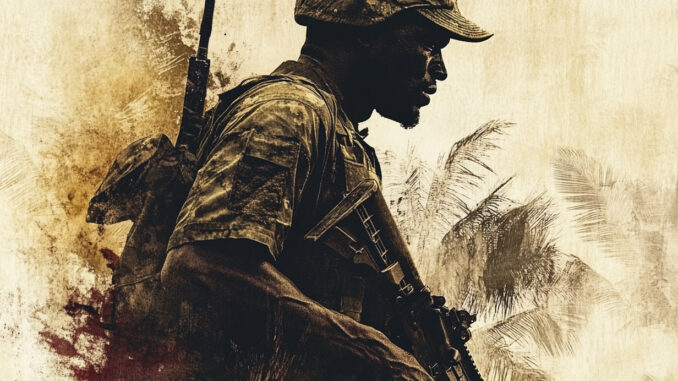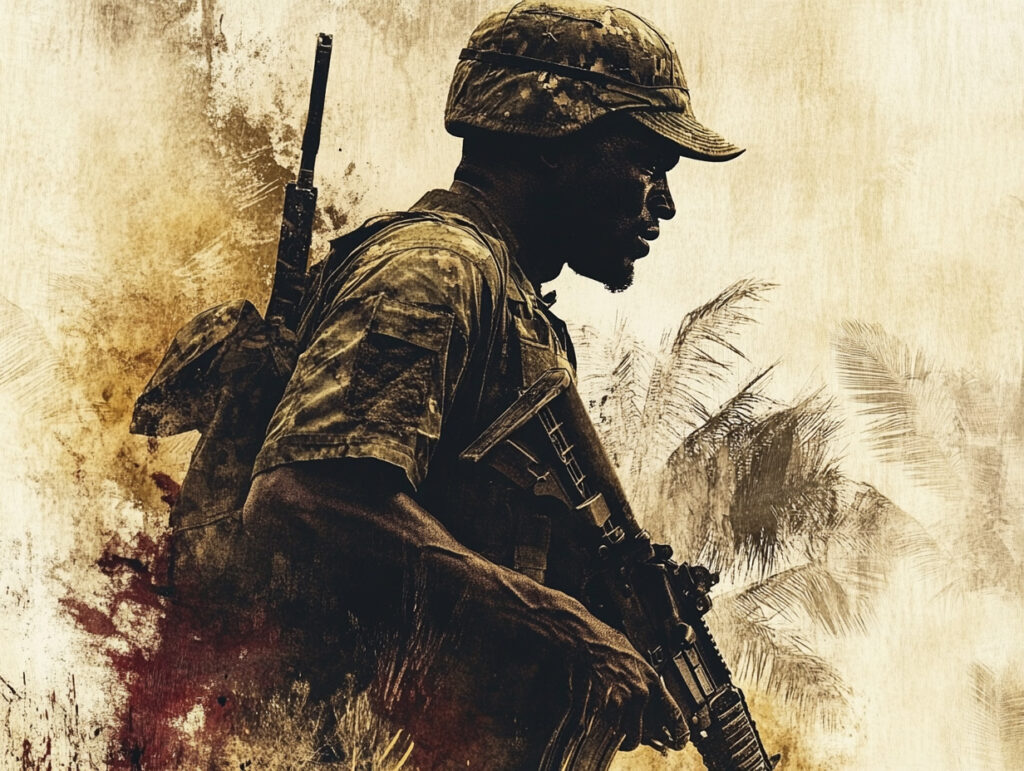
The Central African Republic is the scene of a battle for influence between Russia and the United States, where the Russian mercenaries of the Wagner group are pitted against the American presence.
In the Central African Republic (CAR), the battle for influence between Russia and the United States is intensifying. The Russian mercenary group Wagner, led by Yevgeny Prigozhin before his rebellion and death, has had a significant military and economic presence in the country for years. However, in the wake of internal unrest in Russia, CAR has quietly sought to diversify its partnerships by entering into discussions with an American security company, Bancroft Global Development. This manoeuvre reflects the Central African leaders’ desire to reduce their dependence on Russia while navigating international tensions. This rivalry highlights a wider dynamic, with Russia and the United States vying for influence in Central Africa and beyond.
Background and role of the Wagner Group in the Central African Republic
The Wagner Group is a Russian paramilitary force that came to prominence in the Central African Republic from 2017. The group, made up of around 1,500 mercenaries, has helped the Central African government repel rebel groups threatening to take the capital, Bangui, in 2021. Wagner has established a close relationship with President Faustin-Archange Touadéra by providing military support against the insurgents. This partnership has enabled Russia to strengthen its influence in the region, gradually replacing traditional allies such as France and the United States.
However, Wagner’s involvement is not limited to security. The group has been accused of plundering the country’s natural resources, particularly minerals and timber, to finance its operations. In addition, its involvement in acts of torture and summary executions, as witnessed by the massacre of 300 civilians in Mali in 2021, further tarnishes its image. These actions have strengthened Russia’s control over the CAR, while increasing mistrust of Wagner on the ground.
The impact of the Prigozhin rebellion on operations in Africa
The uprising of Yevgeny Prigozhin against Russian military leadership in June 2023 generated uncertainty about the future of Wagner’s operations in Africa. Prigozhin’s death in a plane crash a few months later precipitated a reorganisation of Russian forces in CAR and other African countries. However, even before Prigozhin’s death, the Central African authorities were already looking to diversify their alliances.
On 23 June 2023, the date of the start of the rebellion, the Central African government wrote to Bancroft Global Development, a security company based in the United States, to discuss a potential collaboration. This partnership would mark an attempt to rebalance the country’s relations with major foreign powers, while reducing its dependence on Wagner. This change of direction has raised tensions with Russian mercenaries, who see the initiative as a threat to their monopoly on security in the CAR.

The rise of Bancroft Global Development and its operations in the CAR
Bancroft Global Development is an American not-for-profit organisation that operates in several African countries, including Somalia, where it helps governments train local security forces. In Central African Republic, Bancroft’s arrival was marked by discretion, but it has since gained momentum following the signing of an agreement with the Central African government in September 2023. Bancroft is helping to build local capacity in intelligence and inter-agency cooperation.
The company has invested around €1.4 million** in its CAR operations, a relatively modest amount compared to the €43 million** it received from US and UN grants between 2018 and 2020. Bancroft founder Michael Stock explained that the CAR was looking to diversify its partnerships due to the disappointing performance of Wagner, whose efforts seemed too focused on non-security projects such as breweries and cultural centres.
Strategic issues for Russia and the United States in Africa
The battle for influence in CAR between Russia and the United States reflects wider geopolitical issues on the African continent. For Russia, the CAR is a model of its approach to Africa, where it combines military support with economic exploitation. If Russia loses its influence in the CAR, this could weaken its position in other African countries where Wagner is active, such as Burkina Faso and Niger. In this respect, the CAR is a key indicator of Russia’s ambitions in Africa.
For the United States, Bancroft’s presence in CAR is part of a wider strategy to contain Russian influence in Africa, while offering local alternatives to African governments. However, the real impact of this strategy remains uncertain, as Wagner is deeply embedded in the CAR’s security system. Russian influence extends beyond the military sphere, with mercenaries widely integrated into Central African society, even opening breweries and taking part in public events.
Future consequences of shared influence
As the Central African Republic seeks to diversify its alliances, the rivalry between Russia and the United States is likely to continue to shape the future of the region. The Wagner group, although weakened by the death of Prigozhin, remains a force to be reckoned with in CAR, and the transition to a partnership with Bancroft could prove difficult. Russian mercenaries are still regarded by some as heroes, particularly for their role in the defence of Bangui in 2021.
The key question is whether Russia will manage to maintain its influence without Wagner or whether the US will succeed in establishing a lasting presence in CAR through Bancroft Global Development. The country’s future will largely depend on its ability to balance the forces at work and choose partners who can make a real contribution to its stability and development.
War Wings Daily is an independant magazine.